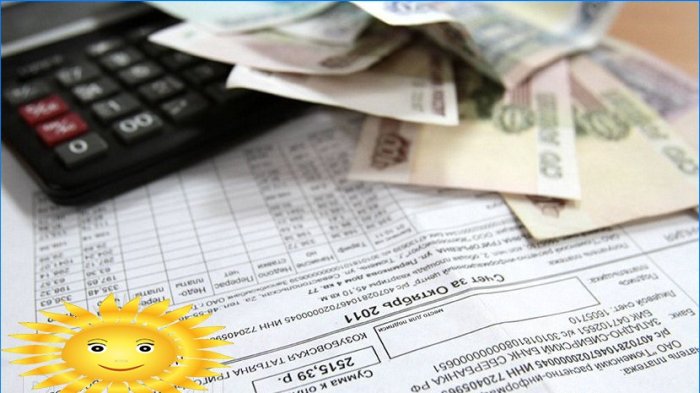Recommendation points
- New electricity consumption and payment rules
- How to recalculate
- Practical tips for saving energy
- Use energy saving lamps
- Check room wiring
- Do not forget to turn off household appliances from the network
- Is there a future for social norms of electricity consumption?
According to the government, ordinary Russians should now take care of saving in the conditions of the crisis. From July 1, 2016, social norms for electricity are going to be introduced throughout the country. How will tariffs change, how to recalculate and is there a future for social norms? Let’s try to figure it out together.
New electricity consumption and payment rules
The essence of the idea of a social norm for electricity is that the state sets a certain limit on monthly consumption for each apartment, after which electricity is paid at an increased rate.
So far, this innovation operates in seven regions of the Russian Federation: Samara, Rostov, Oryol, Vladimir and Nizhny Novgorod regions, as well as in Transbaikalia and in the Krasnoyarsk Territory. Social norms in each of the regions are very different, as are utility rates in various Russian regions and cities..
For example, in the Rostov region the electricity tariff within the social norm is 3.5 rubles per kW, outside it – 3.89 rubles per kW. The size of the social norm depends on the number of residents living in the apartment:
Number of registered residents Energy norm size, kW 1 96 2 156 3 196 4 236 five 276 6 316 In other regions of the Russian Federation (with the exception of the Oryol and Samara regions), the authorities have established much more modest social norms for electricity:
Region The size of the energy rate per person, kW Krasnodar region 75 Transbaikal region 65 Vladimir region 50 Nizhny Novgorod Region 50 The authorities also provide benefits for certain categories of the population. For example, in the Vladimir region for large families and families with disabled children, a social norm is applied taking into account an increased coefficient of 1.5. That is, they can spend up to 75 kW per month per person. The same coefficient is applied for apartments in houses of emergency housing stock or houses in which the degree of physical wear and tear exceeds 70%.
A serious problem with paying for electricity in these regions is that the issue of apartments with multi-tariff meters remains unresolved. Indeed, in the introduced social norms of consumption, no difference is made between daytime and nighttime electricity. Therefore, cheap night energy can be counted by utilities as being consumed within normal limits, and more expensive daytime energy as overrun.
How to recalculate
Although meters are installed in the overwhelming majority of Russian apartments, their data often does not correspond to the invoices issued to consumers by utilities. There can be many reasons for this discrepancy in numbers, here are just a few of them:
- Utility workers calculated the debt not on the basis of meter data, but on the average consumption of the apartment.
- Utilities workers incorrectly took meter readings or simply made a slip when filling out documents.
- The counter itself is faulty.
- Residents were absent for a long time, did not pay for electricity and debt accumulated.
If there are social consumption rates in the region, and consumption readings differ greatly from reality, the residents’ budget can be seriously damaged. In such cases, the faster the debt is recalculated, the better..
For example, if the debt has accumulated due to the departure of tenants (absence in the apartment for more than 5 days in a row), the requirement for recalculation is absolutely legitimate. It is necessary to write an application in duplicate to the management company or an enterprise supplying electricity to the house, demanding a recalculation of consumption. One copy must be registered with the person on duty (it must contain the incoming number, date, signature and position of the person who received it) and keep it, and leave the second in the organization.
The following documents must be attached to the application:
- Form 3 certificate from the passport office, confirming the number of residents registered in the apartment.
- Documents confirming that during the time specified in the application, the tenants were absent from the apartment (travel documents, hotel bills, copies of passports with entry and exit marks, hospital hospital certificates, etc.).
The tenant can only demand a recalculation for 6 months. If an additional application is written, the deadline can be extended for another six months.
If the requirements for recalculation are not met, the tenant has the last option – going to court. But when preparing a claim, it must be borne in mind that the statute of limitations for such cases is three years.
Practical tips for saving energy
Another way to meet established social norms is to use energy more efficiently..
Use energy saving lamps
They are much more expensive than conventional incandescent lamps, but at the same time they last 6-7 times longer and have less power for the same luminous flux.
Check room wiring
Old electrical wiring often leads to increased energy consumption. The costs of its replacement or repair are more than offset by the saved kilowatts of electricity.
Do not forget to turn off household appliances from the network
Research in the UK has shown that 8% of the country’s electricity is consumed by appliances in standby mode. To avoid such irrational waste of electricity, it is necessary not only to turn off household appliances, but also to disconnect them from the network..
Is there a future for social norms of electricity consumption?
As conceived by the officials, the introduction of energy norms for the population should reduce the burden on the budget, because all Russian utility tariffs are greatly underestimated, in addition, the difference between economically justified and current prices is compensated by the mechanism of state cross-subsidization. In addition, it is believed that most often the established social norms will be exceeded by wealthy Russians who own country houses and large apartments, while people with low incomes, accustomed to constant savings, will not be hit by social norms..
According to Prime Minister Dmitry Medvedev, 80% of the country’s population will fit within the limits of social norms established for them. But so far, in the pilot regions, in which “energy soldering” was introduced, there is a more sad picture.
For example, in the Vladimir region, only 40% of the population fits into the approved limits for energy consumption (50 kW per month), while the rest of the region’s residents are forced to pay for electricity at a higher tariff. According to experts, in order for the majority of the population to fit into the social norm, it should be at least 250-300 kW per month (average consumption of one family).
In addition, very often the limit is exceeded not only by wealthy Russians, but also by representatives of low-income strata of the population. After all, they tend to use outdated household appliances that consume much more electricity than modern TVs, refrigerators and irons, and they also spend more time at home. Therefore, in practice, energy standards do not help save electricity, but only increase the cost of paying utility bills..
All these shortcomings led the government to postpone the introduction of social norms throughout the country from 2014 (as previously planned) to July 1, 2016. In addition, according to the government decree, the final decision on the introduction of “energy rations” for the population will be made by the regional authorities..
Experts predict that in many Russian regions, officials may refuse to make such unpopular decisions. And it was decided to abandon the idea of introducing social norms for heat, gas and water in principle, as evidenced by the recent order of Dmitry Medvedev.




The social norm of electricity consumption is an interesting concept. While it may have the potential to save electricity, I can’t help but wonder about its effectiveness. How exactly does this norm influence people’s behavior? Are there any real-life examples or studies supporting its success? And what about those who already practice energy conservation? Will they benefit from this norm or feel pressured to conform? I’m curious to know your thoughts and insights on this matter.